Filter by
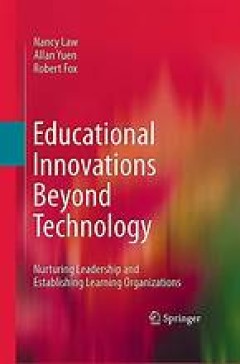
Educational Innovations Beyond Technology
The text explores the concept of innovation, and analyse and compare different dimensions of innovation found in the various case studies; the transfer of innovation and the mechanisms of change; on an innovative online case study database on education innovations that has been designed to be used by education practitioners to support organizational leadership, international collaboration and r…
- Edition
- 1
- ISBN/ISSN
- 978-0-387-71148-5
- Collation
- Teknologi
- Series Title
- -
- Call Number
- 600
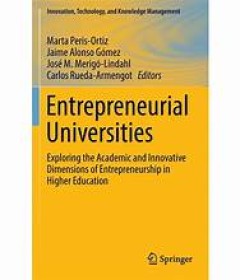
Entrepreneurial Universities
- Edition
- 1
- ISBN/ISSN
- 978-3-319-47949-1
- Collation
- Manajemen
- Series Title
- -
- Call Number
- 650
- Edition
- 1
- ISBN/ISSN
- 978-3-319-47949-1
- Collation
- Manajemen
- Series Title
- -
- Call Number
- 650
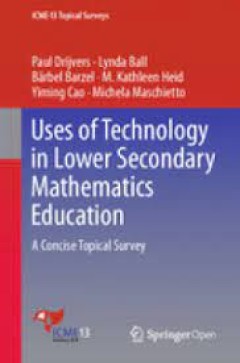
Uses of Technology in Lower Secondary Mathematics Education A Concise Topica…
This topical survey provides an overview of the current state of the art in technology use in mathematics education, including both practice-oriented experiences and research-based evidence, as seen from an international perspective. Three core themes are discussed: Evidence of effectiveness; Digital assessment; and Communication and collaboration. The survey’s final section offers suggest…
- Edition
- -
- ISBN/ISSN
- 978-3-319-33666-4
- Collation
- -
- Series Title
- -
- Call Number
- -
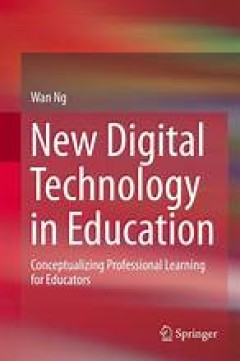
New Digital Technology in Education
This book addresses the issues confronting educators in the integration of digital technologies into their teaching and their students’ learning. Such issues include a skepticism of the added value of technology to educational learning outcomes, the perception of the requirement to keep up with the fast pace of technological innovation, a lack of knowledge of affordable educational digital to…
- Edition
- 1
- ISBN/ISSN
- 978-3-319-05822-1
- Collation
- Teknologi
- Series Title
- -
- Call Number
- 600

High Level Models and Methodologies for Information Systems
In this book the authors introduce and explain many methods and models for the development of Information Systems (IS). It was written in large part to aid designers in designing successful devices/systems to match user needs in the field. Chief among these are website development, usability evaluation, quality evaluation and success assessment. The book provides great detail in order to assist…
- Edition
- -
- ISBN/ISSN
- 978-1-4614-9253-5
- Collation
- XVI, 145
- Series Title
- -
- Call Number
- 004 ISA h
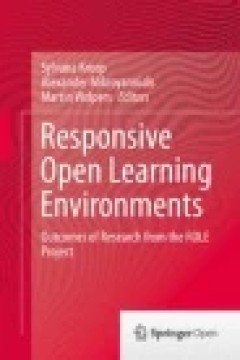
Responsive Open Learning Environments
This book presents the outcomes of four years of educational research in the EU-supported project called ROLE (Responsive Online Learning Environments). ROLE technology is centered around the concept of self-regulated learning that creates responsible learners, who are capable of critical thinking and able to plan their own learning processes. ROLE allows learners to independently search for a…
- Edition
- Ed. 1
- ISBN/ISSN
- 978-3-319-02399-1
- Collation
- -
- Series Title
- -
- Call Number
- -

Research, Boundaries, and Policy in Networked Learning
This book presents cutting-edge, peer reviewed research on networked learning organized by three themes: policy in networked learning, researching networked learning, and boundaries in networked learning. The "policy in networked learning" section explores networked learning in relation to policy networks, spaces of algorithmic governance and more. The "boundaries in networked learning" section…
- Edition
- Ed. 1
- ISBN/ISSN
- 978-3-319-31130-2
- Collation
- -
- Series Title
- -
- Call Number
- -
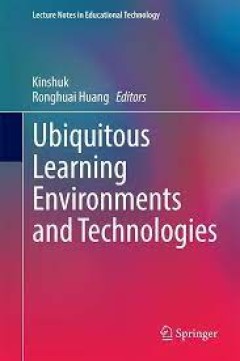
Ubiquitous Learning Environments and Technologies
This book focuses on the design and architecture of ubiquitous learning environments, associated technologies, various learning scenarios supported by these environments, and different contexts that arise in environments where the seamless immersion of formal and informal activities and interactions has the potential to contribute to the learning process. With particular focus on adaptivity for…
- Edition
- -
- ISBN/ISSN
- 978-3-662-44659-1
- Collation
- -
- Series Title
- -
- Call Number
- -
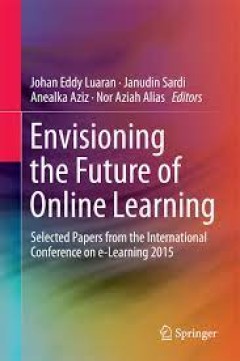
Envisioning the Future of Online Learning : Selected Papers from the Interna…
This book shares insights into the various ways technology can be used for educational purposes, utilizing an approach suitable for both novice and advanced practitioners in this niche area. It features selected papers presented at the International Conference on e-Learning 2015 (ICeL 2015), where professionals discussed how technology can not only serve as a tool in the classroom, but as the c…
- Edition
- -
- ISBN/ISSN
- 978-981-10-0954-9
- Collation
- 112 b/w illustrations
- Series Title
- -
- Call Number
- -
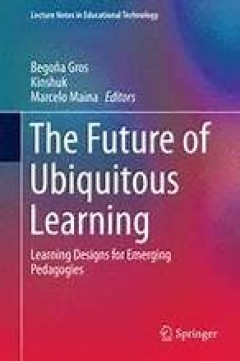
The Future of Ubiquitous Learning
This book explores emerging pedagogical perspectives based on the design of new learning spaces supported by digital technologies and brings together some of the best research in this field. The book is divided into three themes: foundations of emerging pedagogies, learning designs for emerging pedagogies and, adaptive and personalized learning. The chapters provide up-to-date information about…
- Edition
- 1
- ISBN/ISSN
- 978-3-662-47724-3
- Collation
- XIV, 271, 38 b/w illustrations, 8 illustrations in colour
- Series Title
- Lecture Notes in Educational Technology
- Call Number
- -
 Computer Science, Information & General Works
Computer Science, Information & General Works  Philosophy & Psychology
Philosophy & Psychology  Religion
Religion  Social Sciences
Social Sciences  Language
Language  Pure Science
Pure Science  Applied Sciences
Applied Sciences  Art & Recreation
Art & Recreation  Literature
Literature  History & Geography
History & Geography